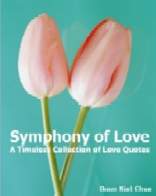Guilty or Gullible? Falling for an Internet Scam
I received this email just a moment ago which I would like to share with you all. For myself, I had received email like this many times and I would just delete it. A lot of time I received email about winning some lottery prize also. Just delete if you receive any such email or if you are unsure, check with your friends. One gentleman even got into trouble with the law for this. You can read more about it in the passage below.
My morning's email was filled with the usual quota of scams.
"Dear Friend," one message began, "As you read this, I don't want you to feel sorry for me, because, I believe everyone will die someday. My name is Shadak Shari, a merchant in Dubai, in the U.A.E. I have been diagnosed with esophageal cancer. It has defied all forms of medical treatment, and right now I have only about a few months to live, according to medical experts."
You know the rest of the story. The guy claims to have found you because you seem trustworthy. It's a matter of great urgency. He has oodles of money and needs you to help him get it out of the country. If you consent to help, you get 10% of some multimillion-dollar bonanza.
This particular type of scam has a name, a 419 scam, named after the Nigerian penal code which relates to fraud. But, as my letter attests, it's not limited to Nigeria.
As soon as you say yes to helping them move money, things start falling apart. You'll get asked to front money to bribe officials, pay fees, help relatives travel out of the country, have papers forged. You may even receive an installment on your big win—a check to deposit, though it's often forged.
I thought the scam was thing of the past, an inside joke, an urban legend—until I read this week's New Yorker. Author Mitchell Zuckoff tells the story of John Worley, a Massachusetts psychotherapist, who fell for the scam hook, line, and sinker as they say. The scary twist is that rather than treating him as a victim of fraud he was treated to a trial in the U.S. District Circuit Court in Boston for bank fraud, money laundering, and possession of counterfeit checks. Found guilty on all counts, he's now serving his sentence. It's a fascinating story of a guy who sinks deeper and deeper into the mess.
Believe me, there are plenty of less overt scams that I can see falling for, but this one is like falling for a knock-knock joke. Most amazing is the fact the Nigerian plea in all of its variations is still alive and kicking after years of being discussed.
Some say scams like the 419 take advantage of our better nature; they prey on our need to be good Samaritans and help others. Others say they simply play on American greed, the dream of getting rich overnight.
Are people who fall for scams like this gullible or guilty? What do you think?
My morning's email was filled with the usual quota of scams.
"Dear Friend," one message began, "As you read this, I don't want you to feel sorry for me, because, I believe everyone will die someday. My name is Shadak Shari, a merchant in Dubai, in the U.A.E. I have been diagnosed with esophageal cancer. It has defied all forms of medical treatment, and right now I have only about a few months to live, according to medical experts."
You know the rest of the story. The guy claims to have found you because you seem trustworthy. It's a matter of great urgency. He has oodles of money and needs you to help him get it out of the country. If you consent to help, you get 10% of some multimillion-dollar bonanza.
This particular type of scam has a name, a 419 scam, named after the Nigerian penal code which relates to fraud. But, as my letter attests, it's not limited to Nigeria.
As soon as you say yes to helping them move money, things start falling apart. You'll get asked to front money to bribe officials, pay fees, help relatives travel out of the country, have papers forged. You may even receive an installment on your big win—a check to deposit, though it's often forged.
I thought the scam was thing of the past, an inside joke, an urban legend—until I read this week's New Yorker. Author Mitchell Zuckoff tells the story of John Worley, a Massachusetts psychotherapist, who fell for the scam hook, line, and sinker as they say. The scary twist is that rather than treating him as a victim of fraud he was treated to a trial in the U.S. District Circuit Court in Boston for bank fraud, money laundering, and possession of counterfeit checks. Found guilty on all counts, he's now serving his sentence. It's a fascinating story of a guy who sinks deeper and deeper into the mess.
Believe me, there are plenty of less overt scams that I can see falling for, but this one is like falling for a knock-knock joke. Most amazing is the fact the Nigerian plea in all of its variations is still alive and kicking after years of being discussed.
Some say scams like the 419 take advantage of our better nature; they prey on our need to be good Samaritans and help others. Others say they simply play on American greed, the dream of getting rich overnight.
Are people who fall for scams like this gullible or guilty? What do you think?


0 Comments:
Post a Comment
Join the Mailing list, get Daily Love Quote in Your Email and get a Free copy of "What is Love?" movie. The name and email address collected are not sold, given, or in any way disclosed to a third party. We will never give out your email address.
<< Home